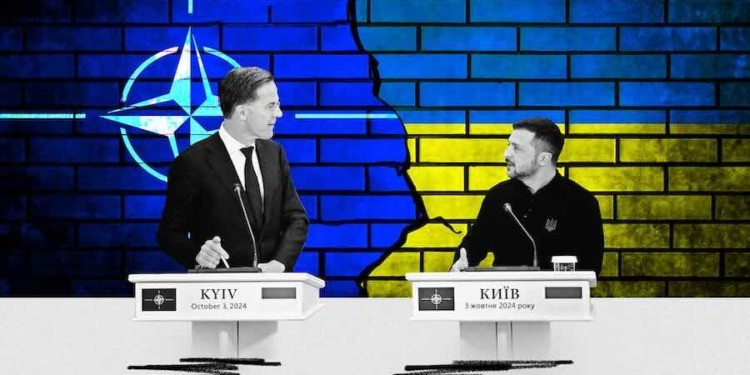LONDON — Ukrainians were already having doubts about their future with the West before former President Donald Trump’s reelection on Nov. 5 likely raised more questions. Gallup surveys show that Ukraine’s hopes for quick accession to NATO and the European Union were beginning to wane and that approval of the leadership of Ukraine’s biggest military backer — the United States — was falling.
In August, just over half of Ukrainians surveyed (51%) expected that Ukraine will become a NATO member in the next decade, down from well over 60% in the first two years of the Russia-Ukraine war. Twenty-two percent think Ukraine will never be accepted into the bloc, about double the rate from previous years.
Ukrainians’ expectations for their country’s accession to the EU follow a similar trajectory. In 2022 and 2023, 73% of Ukrainians believed their country would be accepted within the next 10 years. While a majority (61%) in 2024 continue to expect this, it is 12 percentage points lower than before. Fifteen percent think Ukraine will never be accepted into the EU, more than double the 7% who said so in 2023.
Ukrainians’ hopes for a quick accession to the EU slipped even as formal talks began in June 2024, one decade after the Euromaidan protests put Ukraine on a path to greater alignment with the West.
The path to joining NATO — a military alliance, unlike the EU — is somewhat more complex. In October, former NATO Secretary General Jens Stoltenberg referenced the possibility of Ukraine joining NATO even if Russia occupied parts of its territory. But Ukraine’s accession to NATO faces challenges from within the EU. For example, Slovakian Prime Minister Robert Fico recently reiterated his promise to block Ukraine’s accession to NATO while he remains in office, even though he supports Ukraine joining the EU.
Goodwill Toward U.S. Leadership Fizzles
For many years, Ukrainians’ opinions of U.S. leadership were largely mixed. Between 2014 and 2021, approval of U.S. leadership typically hovered between 20% and 40%, with a similar percentage expressing disapproval.
That changed dramatically with the onset of the war in 2022. The U.S. became Ukraine’s largest provider of military aid, and approval of its leadership jumped accordingly to 66%, one of the highest rates in the world at the time.
Since then, assistance to Ukraine has become a politically charged topic in the United States, with many Republicans seeking to delay and even halt the flow of military aid that Ukraine relies on. In 2024, approval of U.S. leadership has fallen to 40%, broadly in line with pre-2022 sentiments. Nearly as many now disapprove of U.S. leadership (37%) as approve, and the goodwill that the U.S. built up following Russia’s invasion has disappeared.
Approval of Berlin Much More Stable
Ukrainian attitudes toward Germany’s leadership have followed a different path. When the war began, disapproval of Berlin rose from 20% to 35%, while approval remained stable. In the early months of the war, Germany was among the more hesitant Western powers with regard to introducing sanctions against Russia, given their reliance on Russian energy imports.
In 2023, Ukrainian approval and disapproval of Germany’s leadership (53% vs. 20%, respectively) were on par with U.S leadership (53% vs. 22%). As Ukraine’s approval toward the U.S. has declined further in 2024, Germany’s leadership remains stable and broadly in line with pre-war levels. For the first time since the war began, Berlin is now viewed more highly than Washington.





























Discussion about this post